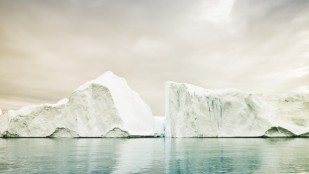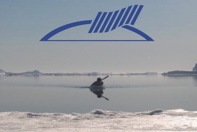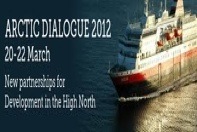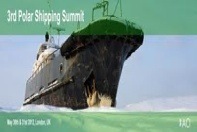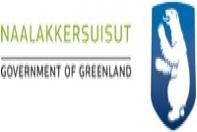“Arctic Update” Interview with Steffen Weber in Nordic Cleantech Review
As rising temperatures reduce ice levels in the Arctic, interest continues to escalate in drilling for the rich deposits of oil and gas in the region.
Environmental groups and other organizations caution that the receding ice should not set off a drilling free-for-all. Studies continue to conclude that the region is too fragile, the risks of accidents too great and the equipment and plans to clean up spills inadequate. “The Arctic holds the world’s largest remaining untapped gas reserves and some of its largest undeveloped oil reserves. A significant proportion of these reserves lie offshore, in the Arctic’s shallow and biologically productive shelf seas,” according to the World Wildlife Federation (WWF).
Six countries — Sweden, Denmark, Norway, Canada, the U.S. and Russia — have sovereign coastlines in the area. No uniform requirements or regulations for operators exist. That is a major concern, because working conditions in the Arctic are not ideal and the windows of opportunity are very limited. Any plans must take into account long, harsh winters with many months of limited daylight and constantly shifting ice. The same conditions that increase the risk of accidents also make cleaning up any spills extremely difficult, some reports maintain. One report, in fact, prepared by Britain’s Chatham House analysts Charles Emmerson and Glada Lahn in April 2012, prompted Lloyd’s of London to express deep concerns about the major environmental impact an industrial accident could have on the Arctic. “The Arctic is likely to attract substantial investment over the coming decade, potentially reaching $100bn or more,” the report notes…”[But] Arctic conditions will remain challenging and often unpredictable. Many of the operational risks to Arctic economic development – particularly oil and gas developments, and shipping – amplify one another. At the same time, the resilience of the Arctic’s ecosystems to withstand risk events is weak, and political and corporate sensitivity to a disaster is high.”
Steffen Weber, secretary general of the EU ARCTIC Forum, said the EU is developing its policy regarding the Arctic, but in discussion of details, such as the inclusion of the Arctic in the proposed Offshore Oil and Gas Safety regulations, there are conflicting views within the European Parliament, while on the general level, the political debate on the role of the EU in the Arctic in the last years has resulted in more coherent and clear understanding and priorities of the EU towards the Arctic. He stressed that the EU ARCTIC Forum is not an official EU institution. “In particular, the EU’s major contribution to research and it’s interest in an sustainable development of resources and its commitment to climate change policies are in the focus,” he added.
Restrictive environmental and technical standards
Some coordinated efforts are in the works. An international agreement for nations to cooperate on Arctic marine oil pollution preparedness and response was drafted in October 2012, with the idea that it would be signed at a meeting in May 2013. The discussions involved representatives from seven countries. The Foreign Ministers of the Arctic states decided at a meeting in 2011 to develop an agreement. “This will help regulate and coordinate responsibilities in the event of an oil spill and nations can share response equipment and resources,” said Dr. Mikhail Babenko, Oil and Gas Officer of the Global Arctic Programme. “It’s much more comprehensive.”
The WWF, for its part, is urging that further work be halted until stringent prevention and response systems are in place. “Our requirement is that Arctic operations shall have uniform, very restrictive environmental and technical standards,” continued Babenko, “This view in many cases is supported by engineering companies– they develop equipment, not oil and gas companies, and these standards may safeguard them from competition from less responsible and hi-tech producers.”
Dick Swart, one of four owners of Well Engineering Partners in the Netherlands, which provides clients support with well engineering, said he is looking to work in the Arctic, but is waiting for an outcome from all the discussions. “Technology is expanding fast with risk-management systems,” Swart said. “If a company fulfilled all the requirements, it should be allowed to drill. But companies need to carefully watch operating procedures and risk assessments. No one can afford shortcuts.”
On the industry side, Shell Oil received permission from President Obama to drill exploratory wells off Alaska’s north coast last year, but the work halted after an undersea containment dome that was part of a spill response system was damaged September 15, adding to skepticism in the environmental community that drilling could be done safely.
A Shell spokesman issued a statement in response to questions: “Approval of our Chukchi and Beaufort Sea Oil Spill Response Plans validates the huge amount of time, technology and resources we have dedicated to assembling an Arctic oil spill response fleet second to none in the world. It reinforces that Shell’s approach to Arctic exploration is aligned with the high standards the Department of Interior expects from an offshore leader. Specifically, Shell’s OSRP includes the assembly of a 24/7 on-site, nearshore and onshore Arctic-class oil spill response fleet, collaboration with the U.S. Coast Guard to test roles and responsibilities and newly engineered Arctic capping and containment systems.”
But Dr. Martin Sommerkorn, Head of Conservation for the WWF Global Arctic Programme, argued that no one should be talking anymore about drilling for fossil fuels, in the Arctic or anywhere else. Money and effort need to be poured into finding alternative sources of energy. “Upcoming offshore oil exploration in the Arctic is expected to result in production in a couple of decades – at exactly a time when we cannot afford producing any more greenhouse gases,” Sommerkorn said. “The impact of climate change will affect all societies and the impact will cost us all. They will cost us increasingly more the longer business as usual is allowed to prevail. Arctic nations are therefore ill-advised to invest in Arctic oil and gas and should rather invest in spearheading the transition to renewable energy sources. Renewables are the only future technology that deserve the attribute ‘clean.’”
You can read the whole article online here.
This article is written by By Ellen R. Delisio from the Nordic Cleantech Review.
